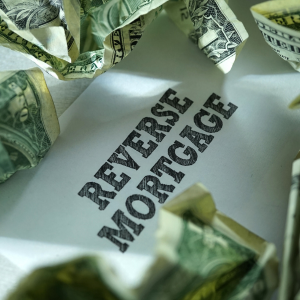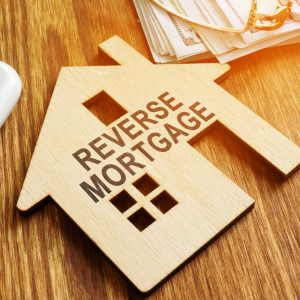
Understanding Reverse Mortgages: A Comprehensive Guide
For Chicago residents wishing to sell their houses, a reverse mortgage can be a useful financial instrument, but it’s important to understand how it operates. In essence, homeowners 62 years of age and older can still own their house while converting a portion of their equity into cash through a reverse mortgage.
Unlike a traditional mortgage, there are no monthly payments; instead, the loan balance increases over time as interest accrues. This can provide much-needed liquidity for seniors who wish to sell their Chicago home but need funds for relocation or other expenses without immediately relinquishing possession of their property.
It is important to remember that the loan is due when the homeowner dies, sells the home, or moves out for good. Before going through with a reverse mortgage in Chicago, it’s important to know about all the costs and requirements, like paying property taxes and insurance.
Consulting with a knowledgeable real estate agent experienced in Chicago’s market and seeking advice from a financial advisor familiar with reverse mortgages can help ensure that this option aligns with your long-term financial goals and provides clarity throughout the process.
Unlock the equity in your Chicago home and sell with ease. Read other FAQ’s here to learn how mortgages work in a transaction so you can get the funds you need and close on your terms.
Common Challenges Faced by Sellers with Reverse Mortgages and How to Overcome Them

When trying to sell their Chicago homes, people with reverse mortgages often run into a number of problems. Understanding how to pay off the loan is a typical problem. This is because interest builds up on reverse mortgages over time, which could cause the balance to be higher than expected.
To remedy this, homeowners should request a clear payoff statement from their lender early in the selling process. Another problem is coping with prospective home equity reductions caused by market changes or the accumulation of interest on the reverse mortgage.
Sellers can mitigate this by consulting real estate professionals who specialize in reverse mortgage transactions to set realistic pricing strategies that reflect current market conditions. Additionally, some sellers face difficulty coordinating timelines since reverse mortgage lenders might require swift repayment upon sale completion.
Working together with the lender and real estate agent helps reduce delays. Selling a Chicago property with a reverse mortgage requires sellers to be aware of potential problems and seek expert help to handle them efficiently.
Financial Implications of Selling Property with a Reverse Mortgage in Illinois
Selling a property in Chicago that has a reverse mortgage can have several financial implications, especially under Illinois laws. Homeowners with a reverse mortgage must be aware that the loan becomes due when they decide to sell their home.
In other words, the money from the sale must first be used to pay off the reverse mortgage. In Illinois, the homeowner can keep any equity left over after paying off the reverse mortgage. However, it takes some careful math and market research to figure out how much equity is available.
To make sure there are no surprises during the deal, you should also plan your finances to include the costs of selling the house, such as real estate agent commissions, closing fees, and possible repairs. It’s very important for landlords to talk to a real estate agent who knows the Chicago housing market and the rules in Illinois about reverse mortgages.
Seeking advice from financial advisors experienced in handling reverse mortgage sales can also help mitigate potential risks and maximize financial outcomes from selling your property under these circumstances.
Navigating the Legal Aspects of Reverse Mortgages in Chicago, IL
Understanding federal and state standards is crucial for navigating the legal aspects of reverse mortgages in Chicago, IL, ensuring a smooth house sale process. In Chicago, homeowners with reverse mortgages must be very cautious about following strict standards established by the United States.
Department of Housing and Urban Development (HUD). It is essential to consult with a local real estate attorney who can provide insights into Illinois-specific laws that may impact your transaction.
It’s important to understand how to pay off a reverse mortgage because the loan amount needs to be settled with the home’s sale proceeds. Also, buyers should know about any liens or debts that might be attached to their property and affect the closing process.
Proper documentation and timely communication with your lender are critical to avoiding delays or complications. Understanding these legal intricacies will help you successfully manage the sale of your Chicago home while complying with all necessary legal requirements associated with reverse mortgages.
The Impact of Local Real Estate Market Trends on Selling Homes with Reverse Mortgages
Understanding local real estate market trends is critical when selling a house in Chicago using a reverse mortgage. The city’s dynamic property market might have a big impact on your sales strategy and financial results.
How quickly and profitably you can sell your home is directly affected by trends like changes in the median home price, the number of homes for sale, and buyer demand. In a seller’s market, where demand is higher than supply, it might be easier for homes to get multiple offers, which could be higher than the amount they still owe on their reverse mortgage.
In contrast, in a buyer’s market with plenty of housing options and low demand, selling the home competitively is critical to ensuring an efficient sale that meets any outstanding commitments. Furthermore, neighborhood-specific considerations such as school district quality and closeness to amenities can play an important role in attracting prospective buyers.
Staying informed about these trends allows sellers to make strategic decisions that optimize both the timing and pricing of their homes, ensuring they meet their financial goals while satisfying the conditions of their reverse mortgage agreements.
Essential Documentation Needed for Selling Property Encumbered by a Reverse Mortgage
Getting the necessary paperwork together is key to a successful sale of a Chicago home with a reverse mortgage. In order to lead negotiations and create reasonable expectations for prospective purchasers, you need to first get the reverse mortgage statement from your lender.
A payoff quote is also necessary, detailing the exact amount required to satisfy the reverse mortgage debt at closing. You’ll need the original loan agreement and any amendments, which outline terms and conditions that may impact the sale process.
When you get the reverse mortgage, you should carefully look over the HUD-1 Settlement Statement or Closing Disclosure to make sure that any mistakes don’t affect your current debts. Also, make sure that all of the property’s tax records are up to date, as any past-due taxes could make the sale more difficult or take longer than planned.
If there are homeowner’s association fees or liens on the land that could affect the transfer of title, get proof of them. Having these papers on hand not only makes talking to real estate agents and lawyers easier, but it also gives buyers trust if they want to buy a home that needs a reverse mortgage to be paid off.
Sell your Chicago home hassle-free, even with a reverse mortgage, by having the proper documents ready. Contact Illinois Real Estate Buyers to navigate the paperwork, pay off your loan, and close quickly.
Preparing Your Chicago Property for Sale: The Role of a Reverse Mortgage Lender

When preparing your Chicago property for sale, especially when dealing with a reverse mortgage, it’s essential to understand the role of a reverse mortgage lender in the process. A reverse mortgage lender can provide valuable insights into the current market conditions and help you determine the best strategies for maximizing your home’s value.
They can guide you through any necessary improvements or repairs that might enhance your property’s appeal to potential buyers. It’s crucial to collaborate closely with them to ensure that all financial aspects are in order before listing your home.
This includes making sure that all the requirements for the reverse mortgage are met. This can help keep the sale from being held up. Also, keeping in touch with your lender makes the process of getting ready for the closing go smoothly, making sure you meet all the requirements and deadlines on time.
By leveraging their expertise, you can position your Chicago home effectively in the competitive real estate market while managing any unique challenges posed by having an existing reverse mortgage.
Even with a reverse mortgage, get the most out of your Chicago home sale. Sell your Chicago house faster and in other cities in Illinois by working alongside your lender, preparing your property, and closing smoothly without delays.
Expert Tips for Maximizing Your Home Sale with an Existing Reverse Mortgage
Knowing the precise tactics that can optimize your sale is essential when selling a Chicago property with an existing reverse mortgage. The terms and circumstances of your reverse mortgage agreement will affect your sale procedure, so be sure you fully comprehend them first.
Speaking with a real estate agent who specializes in reverse mortgage transactions can help you navigate any potential complications. Effective communication with your lender is crucial to confirming the loan’s remaining balance and any additional costs that might be incurred upon selling.
Pricing your home competitively is vital, so work closely with your agent to conduct a thorough market analysis of comparable properties in Chicago’s dynamic real estate landscape. Additionally, consider enhancing your home’s appeal through strategic staging and necessary repairs, as these improvements can significantly influence buyer perception and offers.
Despite the complexities of an existing reverse mortgage, you may streamline the process and achieve a successful house sale by relying on expert counsel and maintaining open communication with all parties involved.
How to Effectively Market Your Home When a Reverse Mortgage Is Involved
When selling a Chicago home with a reverse mortgage, effective marketing strategies are crucial to attract potential buyers and ensure a smooth transaction. Start by highlighting the unique features of your property that set it apart in Chicago’s competitive real estate market.
Hire a real estate agent who has experience with reverse mortgages and knows how to handle these kinds of sales. It’s important to be clear and concise about how the reverse mortgage affects the sale process. This will reassure buyers that any outstanding amount will be paid off at closing.
Professional photography and virtual tours attract digital-savvy shoppers to your home’s best features online. Chicago’s proximity to cultural landmarks and public transportation should be highlighted.
Using real estate websites and social media can help you reach more people and get more potential buyers. You can get through this complicated process more easily if you make it clear how much your home is worth and address any worries people have about the reverse mortgage.
Negotiation Tactics for Sellers Dealing with Buyers and Lenders in the Context of a Reverse Mortgage
When selling your Chicago home with a reverse mortgage, effective negotiation tactics are crucial for dealing with both buyers and lenders. One key strategy is to be transparent about the reverse mortgage payoff requirements, ensuring potential buyers understand any outstanding loan balances that must be settled at closing.
This openness can help clear up any confusion and speed up the negotiating process. To attract buyers, it’s also a good idea to point out what makes your home stand out in the competitive Chicago real estate market.
Talking to lenders directly can also help you learn about any specific rules or fees that come with closing the reverse mortgage, which can help you negotiate better payment terms. You can get better deals if you know about local market trends and use them to your advantage in negotiations.
By being well-prepared and informed, you can confidently navigate negotiations, ensuring a smoother transaction process when selling a home under these unique circumstances.
The Role of Real Estate Agents in Facilitating Sales of Homes with Outstanding Loans
In a market as complicated as Chicago’s, real estate agents are very important for making it easier to sell homes that still have loans on them, like those with reverse mortgages. These experts know a lot about the rules and trends in the local real estate market, which lets them help buyers through the complicated process.
Agents encounter distinctive obstacles when managing reverse mortgages, including guaranteeing that the sale price of the property equals the remaining loan balance while simultaneously providing the vendor with value. In order to guarantee a seamless transaction, they are adept negotiators who facilitate communication between sellers and prospective purchasers, addressing any issues regarding liens and title clearances.
Additionally, experienced agents provide invaluable assistance by coordinating with mortgage lenders to verify payoff amounts and handle necessary documentation. Their expertise is essential for managing timelines and legal requirements specific to properties under reverse mortgages, ensuring compliance with state laws and federal guidelines.
Real estate agents can streamline the sale process for homeowners wishing to move by using their large network and marketing methods to find buyers prepared to pay the financial responsibilities of these properties.
How Do You Sell Your House When You Have a Reverse Mortgage?

In Chicago, selling a home with a reverse mortgage necessitates thorough preparation and knowledge of the essential procedures. First and foremost, it’s critical to understand that the remaining loan balance must be settled at closing when selling your house with a reverse mortgage.
Start by contacting your reverse mortgage lender to obtain a payoff quote, which will detail the total amount owed. Working with an experienced real estate agent familiar with reverse mortgages can be invaluable; they can help set an appropriate listing price that covers your loan balance and any additional fees.
It’s crucial to market your property effectively in Chicago’s competitive real estate market to attract potential buyers quickly. Once you receive offers, evaluate them carefully, ensuring they meet the financial requirements needed to pay off the reverse mortgage.
During negotiations, keep in mind any costs associated with closing, such as realtor commissions and transfer taxes specific to Illinois or Cook County. Clear communication with all parties involved is vital for a smooth transaction.
By following these steps and leveraging expert guidance, you can successfully navigate selling your Chicago home even when dealing with a reverse mortgage. We buy Oak Lawn homes and nearby cities in Illinois, making the process faster, easier, and stress-free
Need to sell your home? Call us at (773) 305-6373 to sell fast, skip expensive repairs, and enjoy a hassle-free process. We provide fair cash offers, take care of every detail, and ensure a smooth, stress-free sale.
Helpful Chicago Blog Articles
• Optimal And Challenging Months For Selling A House In Chicago, IL
• Selling A Chicago, IL, Home With Title Challenges
• Sale Of A Chicago, IL, Home With Unpermitted Renovations
• FHA Repair Requirements For Homes In Chicago, IL
• How Much Is Home Staging Cost in Chicago, IL
• The Best Season For Selling Your House In Chicago, IL
• Can a Seller Back Out Of A Real Estate Contract In Chicago, IL?
• Legal Solutions For Dealing With Bad Neighbors In Chicago, IL
• Tax Implications of Selling Home in Chicago, IL
• Can I Sell a House with a Quitclaim Deed in Chicago, IL
• How Long Does an Eviction Process Take in Chicago, IL?
• Selling a Home That Needs Repairs in Chicago, IL
• How To Sell An Investment Property in Chicago, IL

| MORTGAGE LOAN | MORTGAGE SUM | HOME EQUITY CONVERSION MORTGAGES | REVERSE MORTGAGE LOAN | STATE OF ILLINOIS | LENDING |
| LOANING | FORECLOSURE DEFENSE | MORTGAGE FORECLOSURES | REAL ESTATE MARKETS | REAL ESTATE LAW | HOMEBUYERS |
| HOMEOWNERS’ INSURANCE | BORROWERS | FEDERAL HOUSING ADMINISTRATION | FHA | FEDERAL HOUSING ADMINISTRATION (FHA) | PROPERTY VALUES |
| U.S. DEPARTMENT OF HOUSING AND URBAN DEVELOPMENT (HUD) | INTEREST RATE | INTEREST RATES | INSURANCE PREMIUMS | RETIREMENT | PRIVACY |
| MORTGAGE INSURANCE | REALTORS | BROKER | NEW YORK | THE STATE OF NEW YORK | NEW YORK STATE |
| MONEY | COMPANY | SHORT SALE | REFINANCE | REAL ESTATE TRANSACTION | NON-RECOURSE LOAN |
| NEWS | HOA | FINANCIAL ADVICE | FINANCES | FINANCED | |
| CREDIT | ACCRUED INTEREST | REVERSE MORTGAGE LOAN | HOME EQUITY CONVERSION | REVERSE MORTGAGES ARE | EQUITY CONVERSION MORTGAGE |
| CONVERSION MORTGAGE HECM | OF THE LOAN | HOME EQUITY CONVERSION MORTGAGE | EQUITY CONVERSION MORTGAGE HECM | TYPE OF REVERSE MORTGAGE | A REVERSE MORTGAGE YOU |
| A REVERSE MORTGAGE THE | HOW A REVERSE MORTGAGE | FROM A REVERSE MORTGAGE | A HOME EQUITY CONVERSION | REVERSE MORTGAGE IS A | AND URBAN DEVELOPMENT HUD |
